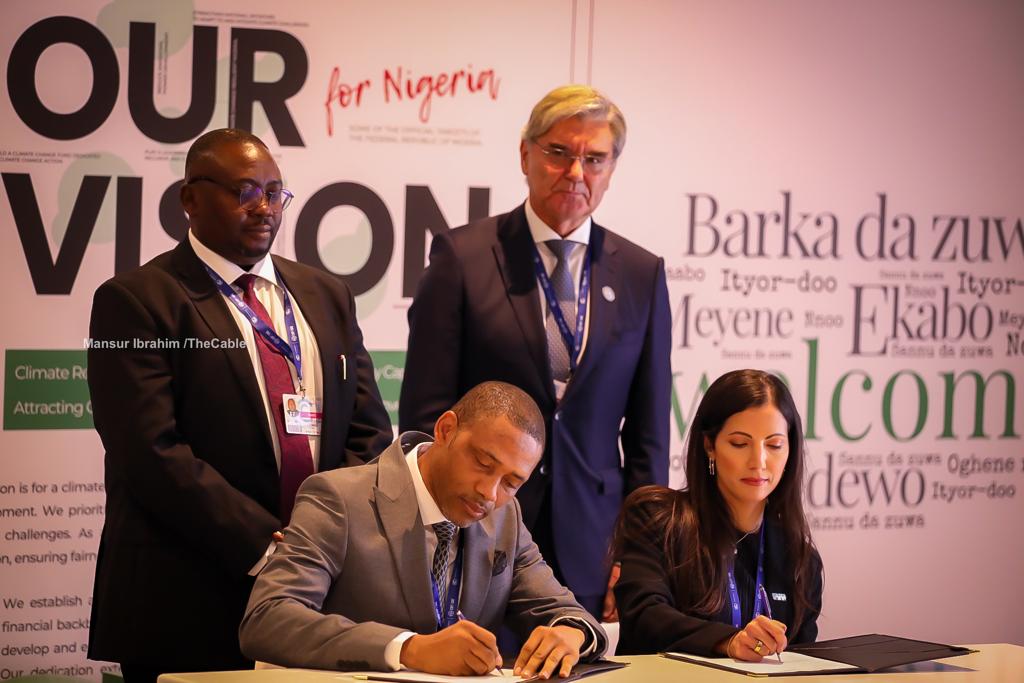Bola Tinubu has formalized an agreement with Olaf Scholz, Germany’s Chancellor, aiming to enhance Nigeria’s grid capacity and augment the country’s electricity supply.
This commitment, directed at expediting the Presidential Power Initiative (PPI), saw the signatures of Kenny Anuwe, CEO of FGN Power Company, and Nadja Haakansson, Siemens Energy managing director for Africa, during an event at COP28 in Dubai last Friday.

Originally initiated in 2019, the PPI project comprises three phases: adding an extra 2GW to the grid for enhanced stability and reliability, elevating the operational capacity to approximately 11GW, and ultimately boosting the system’s capacity to 25GW.
Adebayo Adelabu, the Minister of Power, addressed journalists post-signing, highlighting that the agreement marks a comprehensive modernization and expansion of Nigeria’s electric power transmission grid.
Despite setbacks caused by factors such as COVID-19 since the initial 2019 signing, Adelabu emphasized Nigeria’s readiness to proceed and fulfill the project’s objectives.
He said Siemens Energy has already supplied the necessary equipment needed to execute the project and within 12 to 24 months the government will expand the grid capacity from 6,000 to 8,000 megawatts, with hopes to get to 12,000mw in three years.
“The project is to be financed by Nigeria’s export credit facilities that are being provided by a couple of German banks to Nigeria,” Adelabu said.
“As it is, I might be able to say how much it is going to cost the country, the original agreement we had was for $2.3 billion but what we have executed to date is just in the region of $60 million which has to do with the importation of the 10 transformers and the 10 power substations which Siemens have delivered to the country. They have been commissioned and we are in the process of installation of these transformers.
“The project is in phases, we have the short-term phase, we have the medium term and we have the long-term phase. The short-term phase is going to be between 12 to 24 months where we are actually hoping to improve or expand the grid capacity from 6,000 to 8,000.
“And I believe that the second phase which is going to take us about three to four years, we should be able to improve the grid capacity to 12,000 megawatts.”
Also speaking, Anuwe gave details of Siemens Energy’s equipment worth over €63 million delivered to Nigeria since the project commenced, including 10 units of 132/33KV mobile substations; 3 units of 75/100MVA transformers, and 7 units of 60/66MVA transformers, currently being installed by FGN Power Company at various sites across Nigeria.
The project will also focus on identified load demand centres with a particular emphasis on economic and industrial hubs nationwide; execution of new 330kV and 132/33KV substations in target load centres with economic priority, in addition to thousands of kilometres of overhead transmission lines to connect new substations with existing ones.







